27 April
A Conversation on Disinformation and Democracy
There is broad agreement that disinformation, misinformation, threatens to distort the democratic process. But there is no consensus as to the best response — should states affirmatively prohibit the spread of certain kinds of mis- or dis-information? If so, how, and how much? Does self-regulation by traditional and social media work? And what is the role for non-governmental organizations? Participants in this conference take on those important questions from a US and comparative perspective. The conference will consist of three panels. Participants in Panel 1 will frame the problem and discuss approaches to the direct regulation of dis- or mis-information. Panel 2 will focus on dis- and mis-information in social and traditional media. And Panel 3 will add NGOs to the mix, discussing their role in checking the proliferation of dis- and mis-information or in inoculating its audience.
Panel I: Defining the Problem and the Government’s Potential Role in Combatting Disinformation and Misinformation
Timecode:
00:00 Welcome Remarks, Hawley Johnson, Assoc. Director Columbia Global Freedom of Expression
05:33 Ronald Krotoszynski, John S. Stone Chairholder, University of Alabama School of Law
- Disinformation, Misinformation, and Democracy: Defining the Problem, Identifying Effective Solutions, and the Potential Merits of a Using a Comparative Legal Approach
01:19 Joanna Botha, Associate Professor & Head of Department, Public Law, Faculty of Law Nelson Mandela University
- The South African position on disinformation and misinformation
Panel II: The Role of the Print Media, Broadcast Media, and New Media in Successfully Addressing Disinformation and Misinformation
Timecode:
02:28 John Charney, Professor of Constitutional Law, Department of Public Law, Universidad de Chile, Chile
03:21 Dr. András Koltay, Professor, University of Public Service and the Pázmány Péter Catholic University
III: Potential Interventions by Non-Governmental Organizations and Civil Society Entities to Safeguard Voters from Disinformation and Misinformation
Timecode:
04:06 Eduardo Bertoni, Global Clinical Professor of Law (Spring 2023) NYU Law in Buenos Aires
- Are public officials’ lies unsustainable or do they have far reaching effects?
04:51 Charlotte Garden, Julius E. Davis Professor Of Law, University of Minnesota
- This is What (Workplace) Democracy Looks Like: Labor Unions, Employee Voice, and Mis/DisInformation.
**Please see next video for continuation of discussion
| 10:00 – 11:45 AM | Defining the Problem and the Government’s Potential Role in Combatting Disinformation and Misinformation
Speakers: Ronald Krotoszynski Joanna Botha |
| 11:45 AM – 1:00 PM | Lunch Break |
| 1:00 PM – 2:30 PM | The Role of the Print Media, Broadcast Media, and New Media in Successfully Addressing Disinformation and Misinformation
Speakers: John Charney András Koltay |
| 2:30 PM – 4:00 PM | Potential Interventions by Non-Governmental Organizations and Civil Society Entities to Safeguard Voters from Disinformation and Misinformation
Speakers: Eduardo Bertoni Charlotte Garden |
Ronald Krotoszynski
John S. Stone Chairholder
University of Alabama School of Law
Dr. András Koltay
Professor
University of Public Service and the Pázmány Péter Catholic University
Charlotte Garden
Julius E. Davis Professor of Law
University of Minnesota
Hawley Johnson
Associate Director
Global Freedom of Expression, Columbia University
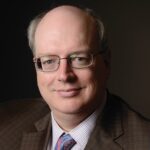 Ronald Krotoszynski, John S. Stone Chairholder of Law and Director of Faculty Research, University of Alabama School of Law
Ronald Krotoszynski, John S. Stone Chairholder of Law and Director of Faculty Research, University of Alabama School of Law
Professor Krotoszynski earned his B.A. and M.A. from Emory University and J.D. and LL.M. from Duke University where he was articles editor for the Duke Law Journal and selected for Order of the Coif. He clerked for the Honorable Frank M. Johnson, Jr, of the United States Court of Appeals for the Eleventh Circuit and was an associate with Covington & Burling, D.C. Prior to joining the faculty at the University of Alabama School of Law, Professor Krotoszynski served on the law faculty at Washington and Lee University and, prior to that, on the law faculty of the Indiana University School of Law-Indianapolis. He also has taught as a visiting professor at the Washington and Lee University School of Law, the Marshall-Wythe School of Law at the College of William and Mary, at the Florida State University College of Law, and at Brooklyn Law School. Krotoszynski has held appointments as a visiting scholar in residence at the University of Washington-Seattle School of Law, the Seattle University School of Law, and the Lewis and Clark School of Law.
 Dr. András Koltay, Professor, University of Public Service and the Pázmány Péter Catholic University
Dr. András Koltay, Professor, University of Public Service and the Pázmány Péter Catholic University
András Koltay is a lawyer, professor at the University of Public Service and the Pázmány Péter Catholic University. He obtained his LL.M. (Master of Law) degree from University College London in 2007, prior to that he also studied at the International Institute of Human Rights in Strasbourg. He received his PhD from the Faculty of Law at the Pázmány University in 2008. From 2010 to 2019 he worked as a member of the Media Council, from 2018 to 2021 he held the position of rector of the National University of Public Service. His main research interests are in the areas of freedom of expression, media law and personal rights. He published his monograph entitled A szólásszabadság alapvonalai [The Foundations of Freedom of Speech] (Századvég) in 2009, his books Freedom of Speech, Religions and the State (Századvég) and New Media and Freedom of Expression (Wolters Kluwer) were published in 2016 and 2019 respectively. In addition, he has more than 400 scientific publications in Hungarian and in English. He is editor-in-chief of Iustum Aequum Salutare, a law journal, as well as In Medias Res, an academic journal on freedom of press and media regulation. Between 2010 and 2019, he was a member of the Media Council of the NMHH. Since 2016 he is a member of the Public Body of the Hungarian Academy of Sciences, and since 2017 a member of the Legal and Ethics Committee of the Hungarian Paralympic Committee.
 Charlotte Garden, Julius E. Davis Professor, University of Minnesota School of Law
Charlotte Garden, Julius E. Davis Professor, University of Minnesota School of Law
Charlotte Garden joined the Law School faculty in Fall 2022. She specializes in labor law, employment law, and constitutional law. Her interests include the intersection of workers’ rights and the Constitution, and how law supports (or undermines) worker voice and power.
Professor Garden’s scholarship has appeared in several leading law reviews, including the University of Pennsylvania Law Review, Emory Law Journal, Boston University Law Review, George Washington Law Review, Fordham Law Review, and the William & Mary Law Review. Her work for generalist audiences appears in outlets such as SCOTUSBlog and OnLabor. In 2019, Cambridge University Press published her edited volume, The Cambridge Handbook of U.S. Labor Law For the Twenty-First Century (co-edited with Rick Bales). She is a co-author of two leading work law casebooks: Modern Labor Law in the Private and Public Sectors, with Joe Slater, Anne Marie Lofaso, Richard F. Griffin, Jr., and Seth Harris; and Employment Law Cases and Materials, with Mark Rothstein, Lance Liebman, Kimberly Yuracko, and Susan Cancelosi.
Prior to coming to the University of Minnesota, Professor Garden was a professor at Seattle University School of Law where she served as Co-Associate Dean for Research & Faculty Development. In 2016 she was a visiting professor at the University of Alabama School of Law. Professor Garden clerked for Judge Thomas L. Ambro of the U.S. Court of Appeals for the Third Circuit. She received her J.D. from NYU School of Law (2003) and her B.A. from McGill University (2000).
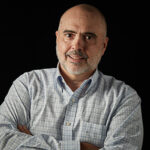 Eduardo Bertoni, Global Clinical Professor of Law (Spring 2023), NYU Law in Buenos Aires
Eduardo Bertoni, Global Clinical Professor of Law (Spring 2023), NYU Law in Buenos Aires
Professor Eduardo Bertoni (PhD, Buenos Aires University) is currently the Representative of the Regional Office for South America of the Inter American Institute of Human Rights. He was the first Director of the Access to Public Information Agency (AAIP) which is the Argentine Data Protection and Access to Information Authority. He was the founder and the first director of the Center for Studies on Freedom of Expression and Access to Information (CELE) at Palermo University School of Law, Argentina. He was the Executive Director of the Due Process of Law Foundation (DPLF) until May, 2006. Previously, he was the Special Rapporteur for Freedom of Expression of the Inter-American Commission of Human Rights at the Organization of American States (2002-2005). Teaching Fellow at the Human Rights Institute at Columbia University School of Law (2001). Reagan-Fascell Democracy Fellow (2012-13) at the National Endowment for Democracy (NED). Former member of the advisory boards of the Human Rights Initiative (Open Society Foundations), the Media Legal Defence Initiative, the Freedom of Information Advocates Network (FOIAnet), among others. Dr. Bertoni has also worked as an advisor to the Department of Justice and Human Rights in Argentina. He is an Argentinean lawyer and holds a Masters in International Policy and Practice from the Elliot School of International Affairs, George Washington University. Prof. Bertoni currently teaches at Buenos Aires University School of Law and New York University School of Law (Global Clinical Professor). He published several opinion pieces on democracy and human rights in leading newspapers in the Americas and has written several publications on judicial reforms, international criminal law and human rights & Internet.
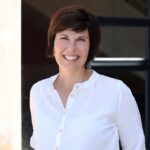 Joanna Botha, Associate Professor & Head of Department, Public Law, Faculty of Law Nelson Mandela University
Joanna Botha, Associate Professor & Head of Department, Public Law, Faculty of Law Nelson Mandela University
Professor Joanna Botha is Head of the Department of Public Law and a recognised expert on freedom of expression and the regulation of hate speech. Joanna is an Attorney of the High Court of South Africa and an experienced legal professional, with an academic career in lecturing, research and leadership extending over 20 years.
She is widely published as a researcher and is consulted as a legal expert on the intersection of freedom of expression, human dignity, and equality. Her particular focus is on the development of a regulatory framework for hate crimes and hate speech that is founded on understanding that inter-group hostility is linked to the power dynamics of social hierarchies. She explores these issues from a people-oriented perspective, in the context of South Africa’s constitutional order.
Her research has been quoted with approval in a judgment of the Constitutional Court of South Africa in a recent hate speech judgment. Joanna’s in-depth knowledge and seminal research on hate speech and equality has led to her representing the African continent in panels convened by the United Nations to develop global standards for the elimination of racial discrimination. She is an executive committee member of the international research networks, Law and Development Research Network (LDRN) and the International Network of Hate Studies (INHS).
Joanna holds the degrees BA LLB (Rhodes) and LLD (NMMU) and has served as Head of the Department of Public Law since July 2016. In the first term of 2023, she will be serving as an Acting Judge in the Eastern Cape High Court.
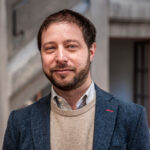 John Charney, Professor of Constitutional Law, Department of Public Law, Universidad de Chile, Chile
John Charney, Professor of Constitutional Law, Department of Public Law, Universidad de Chile, Chile
John Charney Berdichewky is a lawyer with a degree in Legal and Social Sciences from the University of Chile, an LLM from the London School of Economics and Political Science and a PhD in Law from King’s College London. He currently works as a researcher and professor of constitutional law at the Law School of the Pontificia Universidad Católica de Valparaíso. In his book The Illusion of the Press (Hart Publishing, 2017), he explores the relationship between truth and freedom in the free press. The book argues that the relationship is problematic because the free press implies a competition between plural ideas, whereas truth is univocal. Based on this tension the book claims that the idea of a free press is premised on an epistemological illusion.
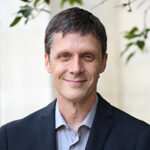 Andrew Kenyon, Professor, Melbourne Law School, University of Melbourne
Andrew Kenyon, Professor, Melbourne Law School, University of Melbourne
Andrew Kenyon is Professor in the Melbourne Law School, University of Melbourne, a member of the School’s Media Law Research Network and an Investigator in the multi-institution ARC Centre of Excellence for Automated Decision-Making and Society. He researches in comparative media law, including freedom of expression, defamation, privacy, data and democracy. As well as legal doctrine, this work draws on research in media studies and political philosophy. Among other work, he has conducted doctrinal and empirical research into defamation law, litigation and news production practices in Australia, the UK, USA, Malaysia and Singapore, and research into comparative approaches to freedom of expression. He has law degrees from the universities of Melbourne and London, and has been a visiting professor at the University of British Columbia, London School of Economics, Queen Mary University of London, and l’université Paris 1 Panthéon Sorbonne. Between 1999 and 2012 he edited the Media & Arts Law Review (with colleagues from 2009-2012) and his memberships include the International Communication Association and the European Communication Research and Education Association.
